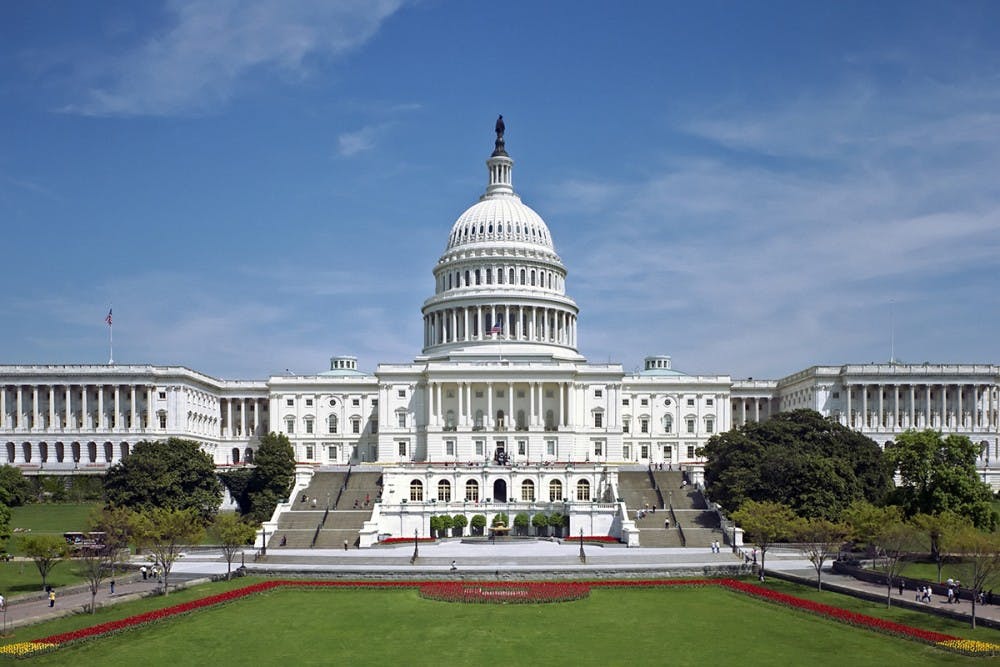Many people have theorized about how to address corruption and gridlock in government. A very common theory is the imposition of term limits for elected officials. Some elected officials have even imposed term limits upon themselves, and there is a bipartisan caucus dedicated to supporting the cause of establishing congressional term limits. However, the concept of term limits comes with downsides that outweigh the potential benefits term limits would bring to government.
A common misconception is that term limits would reduce corruption. The line of reasoning makes sense — if a politician knows when they’ll be leaving office, they have no need to bow to big money interests for the sake of winning reelection. This is a noble idea and the issue of campaign finance is an enormous one worth addressing, but term limits aren’t the solution. Consider the notion of a newly-elected legislator. They don’t have as good of a grasp on how the legislative process works as a more experienced legislator does, and they don’t have the established connections and relationships more elder statesmen do in order to gin up support for legislation. These freshman representatives are more at the mercy of special interests because they don’t have an established fundraising network to support their campaigns. If the National Rifle Association is willing to bankroll a campaign in exchange for a few votes, and a new legislator has no reliable network of longtime donors, they will be more susceptible to the pressure of that special interest, therefore leading to increased corruption. Interest groups will often literally write bills for legislators to sign and introduce to further their own interests. A vacuum for seniority and understanding of how to navigate the legislative process would lead to a drastic increase in lobbyists’ influence over members of Congress.
Furthermore, with the level of polarization in politics, politicians will have less incentive to compromise and will double down on extreme promises and refuse cooperation out of fear of being primaried before their time in the legislature is up. Part of what makes breaking gridlock and maintaining political norms possible are the relationships and connections longtime legislators have with each other. When the importance of those long-standing relationships is eliminated, it gives elected officials less incentive to work together. Gerrymandered districts further increase the benefits of simply playing to a candidate’s electoral base and demonizing the other side, furthering gridlock and lowering any chance for good compromise to occur. This is happening very prominently in Nebraska, which famously has a unicameral legislature where members aren’t officially affiliated with any party. The high amount of turnover since implementing term limits has only heightened political polarization, with little benefit towards addressing gridlock and finding compromise.
Additionally, term limits would force politicians towards a fork in the road. They could either retire and enter the private sector, or they could run for a different office. Entering the private sector would lead to an explosive increase in the revolving door from Congress to lobbying. The amount of former members of Congress shifting over to K Street is already quite high: after the 2014 midterm elections, about one in four former members of Congress remained in Washington and began lobbying. This number doesn’t include former members of Congress who do work very similar to lobbying, such as consulting or advising. If elected bodies are comprised entirely of inexperienced members, the demand for experienced former members to lobby and serve in lobbyist-adjacent positions will skyrocket. Many former members already find their way back into the swamp, so term limits would only increase that number. Conversely, if politicians choose to run for other offices more frequently, then they will be seen as opportunists only looking to advance to the next office up, which will further diminish people’s trust in their elected officials. This will also create a necessity for parties to continually recruit candidates for office rather than being able to rely on incumbents, taking away critical party resources and focus. Additionally, the lack of established fundraising networks from incumbents will cause the sample of candidates recruited to skew much wealthier than it already does. Running for Congress already requires a great deal of money, and term limits would only make it even more exclusionary.
The ultimate goal of term limits is noble and has the best interests of common people at heart. The goal is to simply reduce corruption and create an environment for compromise and effective government. However, the downsides of term limits far outweigh the benefits, and there are far more effective ways of dealing with the presented issues. Proponents of term limits would see more tangible progress towards their goals by focusing on issues such as gerrymandering and campaign finance reform.
Chris Hopkins is a Viewpoint Writer for The Cavalier Daily. He can be reached at opinion@cavalierdaily.com.







